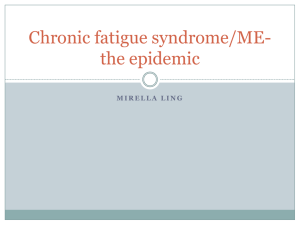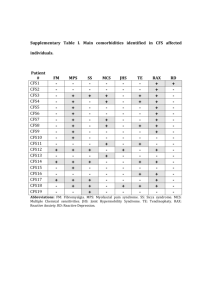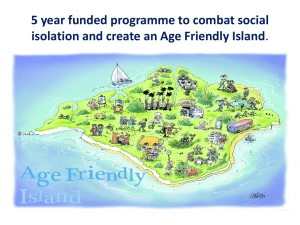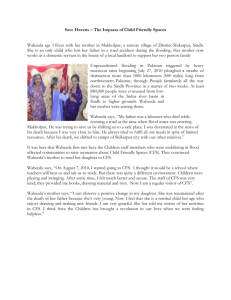Word - Unicef
advertisement
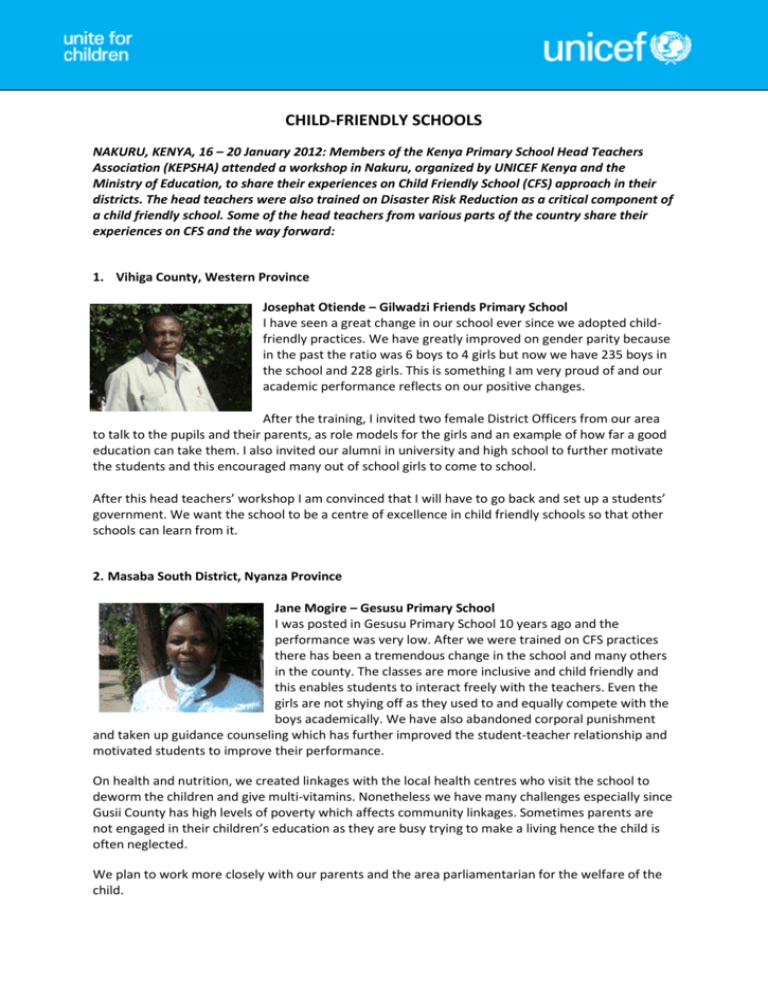
[Type text] CHILD-FRIENDLY SCHOOLS NAKURU, KENYA, 16 – 20 January 2012: Members of the Kenya Primary School Head Teachers Association (KEPSHA) attended a workshop in Nakuru, organized by UNICEF Kenya and the Ministry of Education, to share their experiences on Child Friendly School (CFS) approach in their districts. The head teachers were also trained on Disaster Risk Reduction as a critical component of a child friendly school. Some of the head teachers from various parts of the country share their experiences on CFS and the way forward: 1. Vihiga County, Western Province Josephat Otiende – Gilwadzi Friends Primary School I have seen a great change in our school ever since we adopted childfriendly practices. We have greatly improved on gender parity because in the past the ratio was 6 boys to 4 girls but now we have 235 boys in the school and 228 girls. This is something I am very proud of and our academic performance reflects on our positive changes. After the training, I invited two female District Officers from our area to talk to the pupils and their parents, as role models for the girls and an example of how far a good education can take them. I also invited our alumni in university and high school to further motivate the students and this encouraged many out of school girls to come to school. After this head teachers’ workshop I am convinced that I will have to go back and set up a students’ government. We want the school to be a centre of excellence in child friendly schools so that other schools can learn from it. 2. Masaba South District, Nyanza Province Jane Mogire – Gesusu Primary School I was posted in Gesusu Primary School 10 years ago and the performance was very low. After we were trained on CFS practices there has been a tremendous change in the school and many others in the county. The classes are more inclusive and child friendly and this enables students to interact freely with the teachers. Even the girls are not shying off as they used to and equally compete with the boys academically. We have also abandoned corporal punishment and taken up guidance counseling which has further improved the student-teacher relationship and motivated students to improve their performance. On health and nutrition, we created linkages with the local health centres who visit the school to deworm the children and give multi-vitamins. Nonetheless we have many challenges especially since Gusii County has high levels of poverty which affects community linkages. Sometimes parents are not engaged in their children’s education as they are busy trying to make a living hence the child is often neglected. We plan to work more closely with our parents and the area parliamentarian for the welfare of the child. [Type text] 3. Nandi County, Rift Valley Province Philip Mitei – All Saints Kebulonik Primary Our School has always been a top performer in the country, but after the CFS training the performance also improved significantly. More so the attitude of teachers and students has changed making the school child friendly and more disciplined. We have initiated an open door policy for students to approach teachers and seek assistance. Even my door is open to our students and they can come in for a chat! The pupils are more engaged in school activities, taking care of school resources and keeping the school clean. They really own these initiatives. Every class has a pocket board and this has reduced the cost of purchasing the learning aids from shops as we use the natural materials; teachers and students work together to create these learning aids. We want to continue strengthening community linkages with the community, parents, stakeholders and our area member of parliament to keep up these motivating results. 4. Nairobi County/ Province Evelynn Njagi – Daima Primary, Nairobi My school is situated in one of the slums in Nairobi and we were all trained by UNICEF and the Ministry of Education to ensure that Daima Primary is CFS compliant! The parents are also aware that this is a child friendly school and through regular meetings they have been supportive. Though our performance in last year’s exams dropped, we are still embracing CFS because we should not just look at the performance in exams but also the holistic child and how CFS has impacted them. I truly believe that the Nairobi child is more independent and disciplined thanks to CFS! 5. Nyandarua County, Central Province Francis Nyahoro Ndirangu – Githioro Primary When I was trained on CFS in September 2010 I strongly felt that this was the right thing to do to transform education in the country. I therefore worked closely with the District Education Officer to realize child friendly schools in Nyandarau District by first training our teachers because I believe in the saying ‘Nothing for us without us.’ The most positive impact has been the transformation and conservation of our environment because we managed to start a tree nursery which is flourishing. In fact, we have been able to sponsor 3 students on to high school through the trees we sell from the tree nursery and the Constituency Development Fund (CDF). Our parents are very supportive of child friendly projects and have even contributed to water projects in various schools in the district. Sometimes I even give these parents and their children a tree to take home and plant! Before the end of the year, I want to ensure that all head teachers in Nyandarua County are trained to become CFS compliant and hold seminars in their schools. [Type text] 6. Machakos County, Eastern Province Winfred Sila – Kyaume Primary School Our academic performance has really improved compared to previous years when our schools were among the bottom in the County. In 2010, after the training our mean score in national exams improved from 229.34 in 2009 to 235.62 in 2010 and 248.34 in 2011. We are really impressed by this upward deviation. When we were trained head teachers learnt that all students can be accommodated under one roof regardless of their diverse backgrounds, beliefs, gender, and so forth. This has contributed to the good performance We still face some challenges, particularly my school which is in a drug-infested community and therefore affects our linkages with the community. Children are also affected by the drug menace but we try to offer guidance and counseling for them to abstain from drugs and alcohol. A child friendly school will help to keep students in class and off the streets. 7. Wajir East District, North Eastern Province Habiba Mohammed – Catholic Intergrated School The most tremendous progress has been made through our childchild approach. By creating child friendly schools we have empowered the children to reach other children in the community who are not attending school or are facing various challenges. For example, our girls go around the village and motivate other girls who are at home to come to school. They also report to us any cases of early marriage and female genital mutilation/cutting (FGM) and this has enabled the schools to rescue many girls. Children’s governments have also been established in almost every school with great success as the children have learnt to be more disciplined and have high morals. I believe we will produce many leaders from this district. We have gone very far, and we are going to even further with our action plan. Our geographic area is different from others and unless we do research and have a methodology to work with our children we will never be self-sufficient. 8. Mombasa County, Coast Province – Chairman Fuad Ali – Serani Primary School Our teachers were trained in CFS practices and since then they are embracing the child-centred approach. Children are free to express themselves and are fully involved in learning, even in making learning aids. Teachers are taking time to understand their learners better which is a positive aspect. Even truant and undisciplined students are now being counseled and understood which helps to keep them in school. [Type text] We have really tried to ensure equity and equality in our classrooms, especially in gender parity and Mombasa has attained 50/50 girls and boys in schools. However, we are facing challenges in creating disability friendly schools to enhance equity and will keep working on this. Going forward, we hope to strengthen the students’ council to be more effective. At the moment we still have the old system whereby teachers appoint student leaders but we want our students to participate in school governance and voice their opinions.

